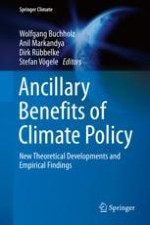2020 | OriginalPaper | Buchkapitel
Sustainable International Cooperation with Ancillary Benefits of Climate Policy
verfasst von : Nobuyuki Takashima
Erschienen in: Ancillary Benefits of Climate Policy
Aktivieren Sie unsere intelligente Suche, um passende Fachinhalte oder Patente zu finden.
Wählen Sie Textabschnitte aus um mit Künstlicher Intelligenz passenden Patente zu finden. powered by
Markieren Sie Textabschnitte, um KI-gestützt weitere passende Inhalte zu finden. powered by
